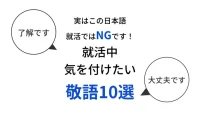International Student Interview Vol.2|Life in Japan by Goandup

Many foreign students dream of studying in Japan. However, actually living in Japan as a foreign student can be more challenging than one might imagine, with language and cultural barriers. Nevertheless, international students are growing and gaining invaluable experience day by day as they adapt to their new environment.
Goandup's International Student Interview Series spotlights international students currently studying in Japan and brings you their real voices. We hope you will feel the importance of cross-cultural understanding and international exchange through their real stories of their life in Japan, including their reasons for coming to Japan to study, the joys and troubles they experienced in their life in Japan, and their dreams for the future.
We hope that this series will provide new insights and encouragement to those interested in Japan and those considering studying abroad in the future. Please take a look at the real stories of international students studying in Japan.
▼Goandup Picks Click here for recommended articles!
- Required before studying abroad! Goandup Nihongo+, an online Japanese language learning service
- This page introduces services for foreigners who wish to study in Japan or improve their Japanese language skills to learn Japanese online.
- Goandup Salon" community for foreigners living in Japan
- We introduce an online community where foreigners living in Japan can exchange information and interact with each other to support their life in Japan.
- Goandup Study" supports foreigners who want to study in Japan.
- This section introduces study abroad support services that provide comprehensive support to foreigners who wish to study in Japan, from preparation for study abroad to living in Japan.
- Where can I buy a prepaid SIM in Japan? Recommended SIM cards for foreigners are also introduced.
- How to purchase a prepaid SIM and suitable SIM cards for foreigners.
- The Complete Guide to Pocket Wi-Fi in Japan for Foreigners!
- We introduce how to select and recommend pocket Wi-Fi products that can be used conveniently in Japan.
- The Complete Guide to Finding a Job in Japan! Finding a job, changing jobs, and part-time work for foreigners
- This site provides foreigners who want to work in Japan with comprehensive information on how to find a job, recommended job sites, and other information necessary to find a job.
Introduction of International Students

- Name: Li Xiaolong
- Age: 22 years old
- Hometown: Beijing, China
- Study Abroad: Private university in Tokyo, Faculty of Economics
- Study Abroad Duration: From September 2023
- Study Abroad Purpose: Deepen your study of economics and learn about the Japanese economic system and culture
- Hobbies: Martial arts and appreciation of Japanese traditional arts
Interviews with international students
Ms. Lee, nice to meet you! I am Chihiro, the person in charge. Nice to meet you.
What made you decide to study in Japan?
Chihiro, thank you very much.
I have had a deep interest in the martial arts since I was a child. I was also interested in Japan's economic development and wanted to further deepen my knowledge in these areas. The main reason I decided to study in Japan was that I wanted to learn not only about martial arts, but also about Japan's economic system and business environment.
Are there any experiences in Japan that have left a particularly strong impression on you?
I was very impressed by the opportunity to experience Japanese martial arts culture. In particular, participating in karate and iaido training allowed me to feel growth not only in technique but also in spirit. In addition, while learning about the Japanese business environment, I was impressed by the spirit of "Omotenashi," which is unique to Japan and is reflected in business.
Have there been any surprises in your life in Japan?
I was amazed at the accuracy of public transportation in Japan. Trains and buses often run on schedule, making time management very easy. Public transportation is also well developed in urban China, but I think it is rare to find such accurate time management as in Japan.
Japan's public transportation system is world renowned for its accuracy!
Have you experienced any difficulties due to language or cultural differences?
When I experienced part-time jobs and internships in Japan, it was difficult at first to understand the unique Japanese workplace culture and manners. For example, at the café where I worked part-time, it was difficult to use honorific expressions for customers. At the company where I interned, I also had to learn new professional skills, such as how to analyze the results of market research and incorporate them into presentation materials, as well as how to choose the correct words and use honorific language when reporting to my boss and team for the first time. Through these experiences, I gradually became accustomed to Japanese workplace culture and business etiquette, but at first I was quite confused.
The use of honorifics for superiors is so difficult that even Japanese people sometimes make mistakes.
Are there any problems you are facing in your life as a foreign student?
It is a challenge for me to understand and properly use economics terminology in Japanese. It is sometimes difficult to express myself accurately in class discussions and report writing, but I am actively learning, believing that this experience will help me in my future career.
Has your Japanese language ability changed since you came to Japan?
Before studying abroad, I could only speak basic Japanese, but now I am able to communicate more fluently than before. In particular, I feel that being able to discuss economic issues, including technical terms, is a great achievement.
Mr. Lee speaks really good Japanese!
What are your future plans and goals for the future?
I'm still working on it...thank you!
As for my future goals, I would like to work to promote business exchange between China and Japan. I would like to build bridges between the cultures and economies of the two countries and contribute to deepening mutual understanding.
Finally, do you have a message for those who are interested in studying abroad?
Studying abroad is a valuable opportunity to open up a new world. You will broaden your horizons by experiencing different cultures and acquiring new knowledge. It may seem difficult at first, but all of these experiences will lead to personal growth. Please do not be afraid to take on challenges and enjoy your study abroad experience to the fullest.
Your message from Mr. Li is really encouraging. I think it will be a great encouragement for those who are considering studying abroad. Thank you very much!
Thank you very much. I was very nervous (laughs).
A Day in Japan for International Students

Here is a daily schedule for Mr. Li Xiaolong.
7:30 AM - rising
As soon as you wake up, take a shower and get ready.
8:00 AM - Commuting
I ride my bicycle to the university. Biking to school while feeling the Tokyo morning air is one of my small daily pleasures. The parks along the way allow me to feel the freshness of the morning and are a great way to start my day.
9:00 AM - Classes begin
As a student of the Faculty of Economics, I mainly attend economics-related lectures in the mornings. Learning about the Japanese economic system is one of the objectives of my study abroad program. In lectures, I actively ask questions and try to deepen my understanding.
12:00 PM - Lunch break
I often spend my lunch break with friends at a small udon restaurant near the university. I love quick and tasty Japanese lunches, and recently I have been exploring restaurants around the university.
1:00 PM - Afternoon classes
Afternoon lectures and seminars are mostly related to the Japanese business environment and culture. Occasionally, students may speak from a practical perspective, drawing on their experiences at their part-time jobs or internships.
4:00 PM - Interns
After class, I intern at a Japanese venture company to put my economics studies to use. During this internship, I work on market research, data analysis, and creating presentations. It is also an excellent opportunity for me to learn practical business etiquette unique to Japan, and these experiences are helping me in my future career.
7:00 PM - Dinner
After returning home from my internship, I eat dinner. Sometimes I have ramen on the way home, but I try to cook for myself. I am not a good cook, so I often eat rice with an egg over it (laughs). I think it is amazing that in Japan you can eat fresh raw eggs without worry.
8:00 PM - Free time
After dinner, I spend time studying or doing hobbies. I like to watch Japanese dramas.
11:00 PM - Bedtime
At the end of the day, I spend time listening to music and relaxing. Recently, I have been feeling a bit tired from balancing college and my internship, so I try to get a good rest in preparation for the next day.
Recommended Japanese language study methods for international students

Xiaolong Li tells us how she is learning Japanese in Japan. If you are currently studying in Japan or plan to study in Japan in the future, please refer to this article.
1. Practical conversation practice
We actively communicate with Japanese people in our daily lives. Through discussions inside and outside of class and conversations at your internship site, you will learn how to use Japanese naturally. It is important to have as many opportunities to speak in Japanese as possible while in Japan.
2. Participation in cultural activities
Participating in cultural activities such as martial arts and traditional Japanese performing arts was also helpful in learning Japanese. It is a good opportunity to gain a deeper understanding of not only the language but also the culture and learn the meaning behind the words.
3. Part-time work or internship experience
Using Japanese while actually working is very effective for learning. Through internships at venture companies, students learn business Japanese, technical terms, and business etiquette. This is a way to gain practical knowledge that goes beyond what you learn in the classroom.
4. Media-based learning
Watching Japanese TV programs, dramas, and movies helps improve my listening skills. In my free time, I turn on the TV and try to be exposed to Japanese as much as possible.
5. Use of online learning tools
There are many ways to learn Japanese using the Internet, but the one I found most effective among the various methods I tried was offered by "Goandup,One-on-One Japanese LessonIt is. I try to take Japanese lessons in my spare time.
Serious employment support to help you realize your dream of working in Japan!

Do you want to work in Japan?
Let us "Goandup" make that dream a reality!
【 Program Features 】
✅ JLPT N3 level Japanese language acquisition
✅ Thorough preparation for the specific skills test
✅ Full support for job hunting in Japan
Business-focused one-on-one lessons will help you find a job in Japan in the shortest possible time.
【 Program Menu 】
- Individual Japanese language lessons
- Intensive curriculum to obtain N3, especially specialized lessons for business Japanese that can be used at work.
- Intensive curriculum to obtain N3, especially specialized lessons for business Japanese that can be used at work.
- Preparation for the Specific Skills Test
- Customized materials for specific skill tests will be used to focus on frequently asked questions and learning to pass the test.
- Customized materials for specific skill tests will be used to focus on frequently asked questions and learning to pass the test.
- Resume and CV support
- To create resumes and CVs tailored to Japanese corporate culture, and to brush up on self-promotion and motivation for application.
- To create resumes and CVs tailored to Japanese corporate culture, and to brush up on self-promotion and motivation for application.
- Interview Preparation
- Guidance on areas for improvement through mock interviews and feedback based on corporate interview scenarios. Learn interview etiquette and behavior unique to Japan.
- Guidance on areas for improvement through mock interviews and feedback based on corporate interview scenarios. Learn interview etiquette and behavior unique to Japan.
- career consulting
- Provide introductions to companies that match the participant's career goals, select companies to apply to, and provide advice on the level of knowledge required by the companies to which the participant is applying.
- Provide introductions to companies that match the participant's career goals, select companies to apply to, and provide advice on the level of knowledge required by the companies to which the participant is applying.
- Chat Support
- In addition to one-on-one individual lessons, we also accept casual questions via DM (visa application, living support, assistance in finding a room, etc.).
If you are serious about your career in Japan, join us now!
▶︎ for more informationclick here.
We will do our best to support your success in Japan!
Finally.
Xiaolong Li's experience shows how much studying in Japan can give you. Through his studies in martial arts and economics, as well as his internship at a venture firm, he has not only deepened his academic studies, but also developed himself. The process of trying new things in a different culture and overcoming the barriers he sometimes encounters has been a valuable asset to him.
For those of you who are thinking about studying abroad in Japan, Mr. Li's story will give you the courage to take the first step. Studying abroad is indeed a series of challenges, but each challenge will help you grow and lead you to a new world.
We hope that this series of articles has helped to motivate those of you who are interested in Japanese culture and language and dream of studying abroad to do so. We also sincerely hope that, like Xiaolong Li's online Japanese speaking lessons, you will actively engage in language learning before and during your study abroad, so that you can have a more fruitful study abroad experience.
In this series of interviews with international students, we have collected valuable stories from international students with diverse backgrounds. Please check out the stories of other international students!
- International Student Interview Vol.1|Life in Japan by Goandup
- International Student Interview Vol.2|Life in Japan by Goandup
- International Student Interview Vol.3|Life in Japan by Goandup
- International Student Interview Vol.6|Life in Japan by Goandup
- International Student Interview Vol.5|Life in Japan by Goandup
- International Student Interview Vol.6|Life in Japan by Goandup
Your support will help us!
Thank you for visiting Goandup Picks. Our mission is to provide you with more useful information to show the world what Japan has to offer.
Your support will help us to further enhance our activities, so please support us!






